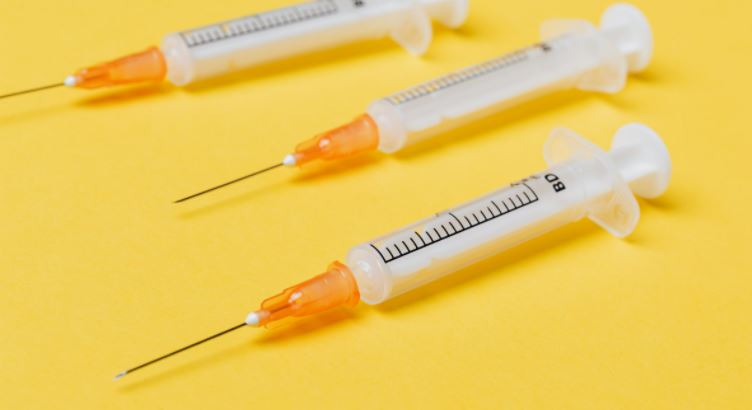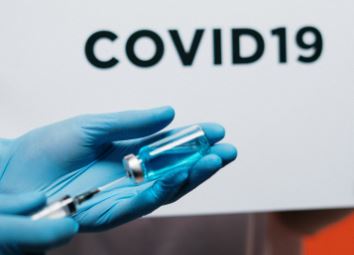


Students encouraged to explore education and career pathways

|

MDHHS to provide COVID tests to educators
MDHHS to provide COVID tests to educators to keep staff, students and community safe as schools offer in-person learning
FOR IMMEDIATE RELEASE: Feb. 2, 2021
CONTACT: Bob Wheaton, 517-241-2112
LANSING, Mich. – The Michigan Department of Health and Human Services (MDHHS) is moving forward with plans to offer a voluntary COVID-19 testing program that will provide weekly tests to educators.
The MI Safe Schools Testing Program will help achieve Gov. Gretchen Whitmer’s goal of having all Michigan school districts offer an in-person learning option for students by March 1.
The COVID-19 rapid antigen testing program is beginning today. The program is for Michigan educators from both public and private schools. MDHHS is providing testing supplies to schools at no cost.
Approximately 300 schools and 9,000 staff have signed up for testing so far.
“Voluntary testing of educators is part of the larger state strategy of keeping students, staff and communities safe while giving children the in-person instruction that they need to learn, develop and grow,” said MDHHS Director Elizabeth Hertel. “Our dedicated teachers are among the frontline workers who have stepped up during this pandemic. Giving them an opportunity to be regularly tested recognizes their sacrifices and keeps everyone safer.”
The rapid antigen testing program is modeled after Michigan’s successful pilot project that tested student-athletes and coaches who were participating in playoffs for high school fall sports such as football. In that program more than 8,300 people were tested. The rigorous testing program resulted in the detection of 69 asymptomatic COVID-19 cases that otherwise could have been missed.
On Jan. 8 MDHHS announced COVID-19 guidance for schools that went along with the goal of an in-person instruction option in all school districts by March 1. The guidance included availability of testing for educators.
Today, Hertel and Dr. Joneigh Khaldun, chief medical executive and MDHHS chief deputy director for health, signed orders authorizing testing in non-health-care settings such as schools.
“Testing is the way we are going to be able to identify cases of COVID-19 and reduce the spread of this virus. Signing this order today helps make sure we are eliminating as many barriers to testing as possible,” Khaldun said. “We encourage everyone who has symptoms of COVID-19, or who has been exposed, to be tested. Everyone has a role to play in ending this pandemic.”
MDHHS and the CDC continue to emphasize the use of scientifically proven methods of reducing the risk of COVID-19 spread, include wearing masks, ventilation improvements in schools, frequent hand washing and social distancing.
In November, MDHHS paused in-person learning in high schools as part of an order to limit indoor gatherings to address an alarming increase in COVID-19 cases and deaths and in hospital occupancy rates.
After case numbers decreased, high schools were permitted to resume in-person classes effective Dec. 21.
The guidance is subject to change. The new orders can be found on the MDHHS website. More information about the MI Safe Schools Testing Program can be found at www.michigan.gov/schoolCOVIDtesting.
Information around this outbreak is changing rapidly. The latest information is available at Michigan.gov/Coronavirus and CDC.gov/Coronavirus.

Dr. Joneigh Khaldun stresses need for more vaccine
Press Release FOR IMMEDIATE RELEASE: Feb. 2, 2021 CONTACT: Lynn Sutfin, 517-241-2112, SutfinL1@ Dr. Joneigh Khaldun stresses need for more vaccine LANSING, Mich. – Today, Dr. Joneigh Khaldun, chief medical executive and chief deputy for health at the Michigan Department of Health and Human Services (MDHHS), testified before the House Energy and Commerce Oversight and Investigations Subcommittee about Michigan’s COVID-19 vaccination efforts, federal needs, and the state’s work to expedite the administration of vaccines without compromising equity. As of Monday, Feb. 1, Michigan has administered more than 1 million total of first and second doses of the Pfizer and Moderna vaccines. Michigan has prioritized operational efficiency and equity in its vaccination efforts and has climbed more than 20 slots in the past few weeks compared to other states as it relates to proportion of people vaccinated. “Since the emergence of COVID-19 just over a year ago the world has eagerly awaited a vaccine that could help to end this unprecedented pandemic,” Khaldun said. “Now, with two safe and effective vaccines and additional vaccines on the horizon, Michigan is working to distribute the vaccine quickly, efficiently and equitably to residents across the state. Like many other states, Michigan’s single biggest challenge with the vaccine rollout has been the limited supply of vaccine available week to week and the lack of a national federal strategy until now. Despite this, Michigan has made significant strides in implementing our vaccination strategy.” Khaldun outlined the comprehensive vaccination strategy the state has launched, which centers around the following ambitious but achievable goals:
Dr. Khaldun testified to the House Energy and Commerce Oversight and Investigations Subcommittee alongside physicians and public health experts from Illinois, West Virginia, Louisiana and Colorado as part of a hearing entitled, “No Time to Lose: Solutions to Increase COVID-19 Vaccinations in the States”. “COVID-19 has wrought unimaginable death and destruction throughout the world. In the past 12 months, more than 2 million people have died from COVID-19, including more than 14,600 people in Michigan,” said Khaldun. “However, science has prevailed. We have two safe and effective COVID-19 vaccines available today with another likely coming in the weeks ahead. While these vaccines were developed in less than a year, they were built upon decades of scientific research. To develop a vaccine, rigorously test it and bring it to market in less than a year is an incredible feat that should be celebrated. I am proud of the work of our state and local health departments and health care systems who have worked tirelessly to deliver vaccines while also fighting to bring down the curve. We must ensure every person in America that wants a vaccine can quickly and equitably receive one. We can end this pandemic, but it will require cooperation, hard work, transparency and dedication from each and every one of us.” A copy of Dr. Khaldun’s full testimony is available on the MDHHS website. |

Michigan has Administered Over One Million Vaccines

|

UIA Update: All PUA, PEUC claimants can reopen unemployment claims
UIA Update: All PUA, PEUC claimants can now reopen or certify unemployment claims
February 1, 2021
Media Contact: Lynda Robinson, 313-348-8220
The Michigan Unemployment Insurance Agency has completed system updates for the recently extended federal unemployment insurance (UI) programs. All remaining Pandemic Unemployment Assistance (PUA) and Pandemic Emergency Unemployment Compensation (PEUC) claimants whose claims ended when CARES Act programs were interrupted in December can now either reopen, certify or apply for benefits available under the Continued Assistance Act (CAA). Claimants were notified from the UIA with information and instructions regarding the changes.
The CAA allows PEUC and PUA claimants an additional 11 weeks of benefits payable for the week ending Jan. 2 through March 13, 2021. Payments also include the additional $300 Federal Pandemic Unemployment Compensation (FPUC) weekly benefit.
PUA
- New PUA claims can now be filed online at michigan.gov/uia.
- PUA claimants who exhausted their original entitlement of benefits prior to Dec. 26, 2020 can also now reopen their claim to receive an additional 11 weeks of benefits, payable retroactively, beginning with the week ending Jan. 2, 2021. Claimants have or will receive notification by email, through their MiWAM account or by mail alerting them to the availability of the additional weeks.
- A new provision under the CAA requires PUA claimants to submit proof of employment or self-employment to maintain eligibility. For example, claimants need documentation showing their employment or self-employment for the tax year prior to when they filed their original claim for benefits. Individuals who filed their original PUA claim in 2020 need documentation to support employment in 2019. New PUA applications filed in 2021 should include supportive documentation of employment in 2020.
- Appropriate documents can include tax documents, paycheck stubs, state or federal employer identification numbers, business licenses, business receipts or a signed affidavit.
- Claimants should not submit this documentation until they receive a notice instructing them where to upload it and the timelines for doing so.
PEUC
- PEUC claimants who exhausted their previous entitlement will be able to reopen their claim to receive an additional 11 weeks of benefits, payable retroactively, beginning with the week ending Jan. 2, 2021. Claimants have or will receive notification by email, through their MiWAM account or by mail alerting them to the availability of the additional weeks.
- Workers on regular state UI benefits will no longer receive the PEUC extension automatically. The CAA now requires workers to submit an application. Once a worker has exhausted their state UI benefits, they will need to log into their MiWAM account and click on, “Additional Information Required – click here to file an extension.”
“We’re pleased to have restored the federal programs that so many workers in our state are depending on. These are vital programs that have helped Michiganders provide for their families as we continue to navigate COVID-19,” said Liza Estlund Olson, acting director of the UIA. “While this is a huge step forward, we know there’s still more work to do to ensure everyone receives the benefits they are entitled to.”
One final provision the Agency continues to develop is the Mixed Earners Unemployment Compensation (MEUC) program, which allows workers who earned at least $5,000 in self-employment income to apply for an additional $100 per week in supplemental benefits. MEUC is payable from Dec. 27, 2020 through March 13, 2021.
Claimants should continue to monitor their MiWAM account and the UIA website for updates.

